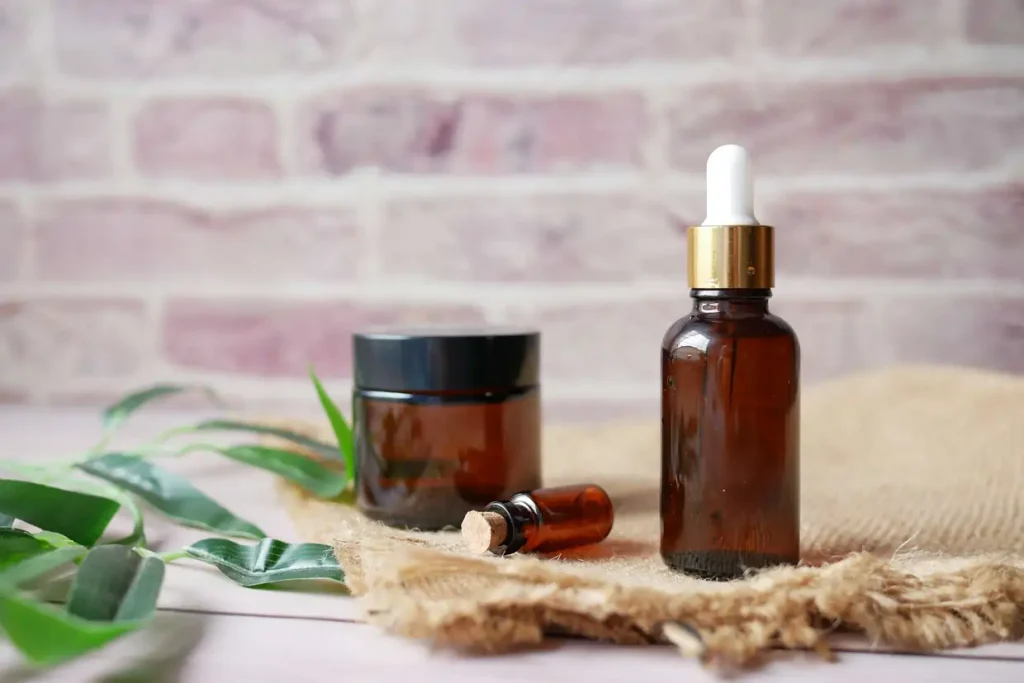The use of natural and organic makeup products has been gaining popularity in recent years. Many consumers are becoming more conscious of the chemicals and synthetic materials found in traditional makeup and are seeking out alternatives that are kinder to their skin and the environment. This trend has led to an increase in the number of natural and organic makeup brands and products available on the market.
Understanding the trend
In recent years, there has been a growing trend towards natural and organic makeup products. This trend can be attributed to a number of factors, including increased consumer awareness about the potential harms of synthetic chemicals in personal care products, and a growing desire for products that align with consumers’ values for health and environmental sustainability.
One of the main drivers of the trend towards natural and organic makeup is a growing awareness about the potential harms of synthetic chemicals in personal care products. Many conventional makeup products contain a range of synthetic chemicals, including parabens, phthalates, and synthetic fragrances, that can have negative health impacts over time. Consumers are becoming increasingly aware of these risks, and are looking for alternative products that are free from these chemicals.
Another factor contributing to the rise of natural and organic makeup is a growing desire for products that align with consumers’ values for health and environmental sustainability. Consumers are becoming increasingly aware of the impact of their purchasing decisions on the environment and are looking for ways to make more responsible choices. Natural and organic makeup products, which are often cruelty-free, and often sustainably sourced, can help consumers feel good about the products they are buying.
Moreover, the rise of social media platforms have help natural and organic makeup to gain popularity, Many people have a tendency to buy what they see on social media platforms, influencers, and bloggers have been a big part of this trend, they promote organic and natural makeup and ingredients, giving more and more exposure to consumers who haven’t considered these options before.
The Benefits of Using Natural and Organic Makeup Products
The use of natural and organic makeup products offers a range of benefits for both individual users and the environment.
One of the main benefits of using natural and organic makeup products is the fact that they are free from synthetic chemicals and preservatives that can have negative health impacts over time. Many conventional makeup products contain a range of synthetic chemicals, such as parabens, phthalates, and synthetic fragrances, that have been linked to various health concerns, including hormone disruption, skin irritation, and even cancer. By using natural and organic makeup products, individuals can reduce their exposure to these harmful chemicals and promote better overall health and well-being.
Another benefit of using natural and organic makeup products is that they are often cruelty-free and sustainably sourced. Many natural and organic makeup products are made without testing on animals and using ingredients from sustainable sources. This can help to reduce the environmental impact of the cosmetics industry, and promote more responsible and ethical practices in the field.
Natural and organic makeup products are also beneficial for the skin, as they are made with ingredients that are good for the skin, such as nourishing oils, minerals and botanicals, these ingredients are gentle and non-irritating for the skin, and can provide benefits such as hydration, sun protection, and anti-aging properties. The natural ingredients present in these products can soothe and balance the skin, reducing the risk of irritation, inflammation and other skin conditions.
Furthermore, natural and organic makeup products are often better suited for sensitive skin, as they are free from synthetic fragrances, colors, and preservatives that can irritate the skin, cause allergic reactions or exacerbate existing skin conditions. These products are also ideal for people with specific skin concerns, like acne or rosacea, since they are made without harsh chemicals and irritants that can further aggravate these conditions.
Additionally, using natural and organic makeup products can be an opportunity to expose to new ingredients that have the potential to improve skin health. Some of these ingredients such as, turmeric, green tea, aloe vera and rosehip oil, are known for their anti-inflammatory, antioxidant, and healing properties.
Risk of using Natural and Organic Makeup Products
While natural and organic makeup products are generally considered to be safer and healthier for the skin compared to traditional makeup products, there are still risks associated with their use. Here are some of the potential risks of using natural and organic makeup products:
- Allergic reactions: Just like traditional makeup products, natural and organic makeup products can cause allergic reactions in some individuals. This can be due to an allergic reaction to one or more of the ingredients in the product.
- Contamination: Since natural and organic makeup products are not subject to the same level of regulation as traditional makeup products, there is a risk that they may be contaminated with harmful substances or bacteria.
- Ineffective: Some natural and organic makeup products may not have the same level of effectiveness as traditional makeup products. They may not have the same level of pigmentation or may not last as long, which could make them less appealing to some consumers.
- Misleading labeling: Some products marketed as natural and organic may not actually be so, as there is no official standard for natural and organic cosmetics in many countries.
It’s important to be aware of these risks and to take steps to minimize them. This can include checking ingredients lists, researching the brand, and consulting with a dermatologist if you have sensitive skin.
A Closer Look at the Ingredients
Natural and organic makeup products are made using primarily natural ingredients. These ingredients are derived from plants, minerals, and other natural sources, and are chosen for their ability to nourish and protect the skin, while providing the desired cosmetic benefits.
One of the most common natural and organic ingredients found in makeup products is beeswax. This ingredient is derived from the wax secreted by bees and is often used as a natural thickener and emulsifier in makeup products. Beeswax is also known for its moisturizing properties and can help to protect the skin from environmental damage.
Another common ingredient found in natural and organic makeup products is coconut oil. This oil is derived from the meat of mature coconuts and is known for its hydrating and softening properties. It is often used as a base ingredient in makeup products, such as lip balms and eyeliners, and can also help to nourish the skin and hair.
Jojoba oil is another popular ingredient in natural and organic makeup products. This oil is derived from the seeds of the jojoba plant and is known for its ability to mimic the skin’s natural oils. It is often used in foundations, mascaras, and eyeliners, and can help to protect the skin from environmental damage and maintain its natural moisture levels.
Shea butter is another key ingredient in natural and organic makeup products. This butter is derived from the nuts of the shea tree and is known for its moisturizing and soothing properties. It is often used in lip balms, eyeshadows, and other makeup products and can help to protect the skin from environmental damage, while also providing a smooth, creamy texture.
Another important ingredient in natural and organic makeup products is mineral pigments. These pigments are derived from natural minerals such as iron oxide, titanium dioxide and zinc oxide and are used to provide color to makeup products. They are non-toxic and non-irritant, and can provide natural-looking coverage that is gentle on the skin.
Additionally, botanical ingredients such as aloe vera, chamomile, calendula and rose can be found in natural and organic makeup products. These ingredients have soothing, hydrating and anti-inflammatory properties, which makes them ideal for sensitive skin, also many of these ingredients have an added benefit such as anti-aging, anti-acne and sun protection properties.

Natural and Organic Makeup Market: What to Look for and What to Avoid
Navigating the natural and organic makeup market can be challenging, as there are many products available, and not all of them are created equal. To ensure that you are getting the best possible products for your skin and your values, it’s important to know what to look for and what to avoid when shopping for natural and organic makeup.
When shopping for natural and organic makeup, it’s important to look for products that are certified organic by organizations such as USDA or COSMOS. These certifications ensure that the products are made using primarily organic ingredients and are free from synthetic chemicals and preservatives. Additionally, look for products that are cruelty-free, and are made without testing on animals. Also, it is recommended to look for products that are made with ingredients that are good for the skin, such as nourishing oils, minerals, and botanicals.
Another important factor to consider when shopping for natural and organic makeup is the transparency of the ingredients. You should be able to easily find the ingredients list on the product label, or on the company’s website, and should be able to understand the ingredients’ name. A good indication is if you can pronounce the names of the ingredients, or recognize the ingredient as a botanical or natural source.
It’s also important to be aware that the terms “natural” and “organic” are not regulated in the cosmetic industry, so companies may use these terms to market their products even if they contain synthetic ingredients or little to no organic ingredients. Therefore, it is necessary to be mindful of these terms when shopping, and to always check the ingredients list to ensure that the product truly is natural and organic.
Additionally, it is recommended to be mindful of the packaging. Avoid products with excessive packaging, and opt for products that are packaged with environmentally-friendly materials.
On the other hand, there are certain things to avoid when shopping for natural and organic makeup. Avoid products that contain synthetic chemicals such as parabens, phthalates, and synthetic fragrances, as these chemicals have been linked to various health concerns and have no benefits for the skin.
Comparing Natural and Organic Makeup to Traditional Makeup
When comparing the performance of natural and organic makeup to traditional makeup, it’s important to consider several factors, including ingredients, coverage, durability, and skin compatibility.
One of the main differences between natural and organic makeup and traditional makeup is the ingredients used. Natural and organic makeup products are made using primarily natural ingredients. These products are free of known harmful ingredients such as parabens, phthalates, and synthetic fragrances, and instead use ingredients derived from plants, minerals, and other natural sources. On the other hand, traditional makeup products often contain a range of synthetic chemicals, that can have negative health impacts over time.
In terms of coverage, natural and organic makeup products may not provide the same level of coverage as traditional makeup products. Traditional makeup products, especially those labelled as full coverage, often use ingredients like silicones, which can help to create a smooth and flawless finish, whereas natural and organic products may use mineral pigments which often provide a more natural coverage. However, natural and organic makeup products can provide coverage that is still effective, while also being gentler on the skin.
Durability is another factor to consider when comparing the performance of natural and organic makeup to traditional makeup. Traditional makeup products are often formulated to last longer than natural and organic makeup products, which tend to be more delicate. However, this is not always the case, there are natural and organic makeup products that have a good durability and can last for several hours, and it also depends on the specific product and the intended use.
Finally, it’s important to consider the compatibility of natural and organic makeup with different skin types. Natural and organic makeup products are often better suited for sensitive skin, as they are free from synthetic fragrances, colors, and preservatives that can irritate the skin, cause allergic reactions, or exacerbate existing skin conditions. Traditional makeup products, on the other hand, may contain these ingredients which can be harsh on sensitive skin, causing dryness, redness, or even breakouts.

Emerging Trends and Innovations
The natural and organic makeup market is expected to continue growing in the future, driven by increased consumer awareness about the potential harms of synthetic chemicals in personal care products, and a growing desire for products that align with consumers’ values for health and environmental sustainability. The industry is also likely to be impacted by new technological innovations, changing consumer preferences, and emerging trends in the field of natural and organic makeup.
One of the most significant emerging trends in the natural and organic makeup market is the focus on clean beauty. The clean beauty movement emphasizes the use of non-toxic, safe, and ethical ingredients in cosmetics, and the elimination of ingredients that are known to be harmful to human health or the environment. As consumers become more aware of the potential harms of synthetic chemicals in personal care products, they are increasingly seeking out clean beauty options that are free from harmful ingredients.
Another emerging trend in the natural and organic makeup market is the increasing popularity of minimalism. Consumers are becoming more interested in a minimalistic approach to beauty, focusing on a small number of high-quality products that are effective and easy to use. This trend is likely to lead to a rise in the popularity of multi-use products, such as lip and cheek stains, and tinted moisturizers, which can be used to achieve a natural-looking, effortless beauty.
In addition, technology is also playing a role in the future of the natural and organic makeup market. Augmented Reality is one of the trends that is expected to be used more by beauty brands to help consumers make the right choice, this technology allows consumers to see how a product would look on their face virtually, and also, Virtual Try-On will be more prevalent, which lets consumers test-drive a product without leaving their home, by using a photo of themselves or a 3D scan of their face.
Finally, personalization is another trend that is expected to take off in the future. Personalization refers to the ability of consumers to create their own unique makeup products, or have them custom-made to their specific needs and preferences. This trend is expected to grow as consumers become more interested in products that are tailored to their individual needs, and as technology makes it easier to create personalized products.
Understanding Certification and Standards
When it comes to natural and organic makeup, certifications and standards are crucial in ensuring that the products are authentic and meet certain quality criteria. These certifications and standards are established by organizations that specialize in evaluating and approving natural and organic products, and they provide consumers with a way to differentiate between genuine natural and organic products and those that are simply marketed as such.
One of the most well-known certifications for natural and organic makeup is the USDA Organic certification. This certification is issued by the United States Department of Agriculture (USDA) and it ensures that the products have been made with at least 95% organic ingredients and that the remaining ingredients are non-toxic and non-GMO. The USDA organic seal on a product guarantees that the ingredients are grown without the use of synthetic pesticides, fertilizers, or genetically modified organisms (GMOs), and that the products have been produced according to the USDA’s strict guidelines.
Another well-known certification for natural and organic makeup is the COSMOS (COSMetic Organic Standard) certification. This certification is recognized internationally and it ensures that the products have been made with at least 95% natural and/or organic ingredients, that they are free from certain synthetic ingredients, and that they have been produced according to sustainable practices. The COSMOS certification also covers environmental and ethical aspects, including restrictions on animal testing, biodegradable packaging and a guarantee of fair trade of ingredients.
There are also certifications that focus on specific aspects such as environmental sustainability, cruelty-free and vegan standards. For example, certifications like the Leaping Bunny and PETA certify that the product and their ingredients were not tested on animals, while certifications like the Vegan Society or Vegan Action certifies that the product does not include any animal-derived ingredients and that it has not been tested on animals.
Additionally, certifications like EcoCert and NaTrue, which are recognized globally, that evaluate not only the ingredients but also the manufacturing and packaging processes, to ensure that they meet the highest standards of environmental sustainability.
It’s important to note that while certifications and standards provide consumers with assurance that a product is authentic, they are not always a guarantee of quality. It is always important to check the ingredients list, and research the brand before making a purchase to ensure that the product is suitable for you and your personal values.

Final Thought
Natural and organic makeup can be worth the extra cost for those who prioritize the health of their skin and the planet. However, it is important to be mindful of the ingredients and certifications of natural and organic makeup products, and to consider your personal preferences and budget, to make the most informed decision.